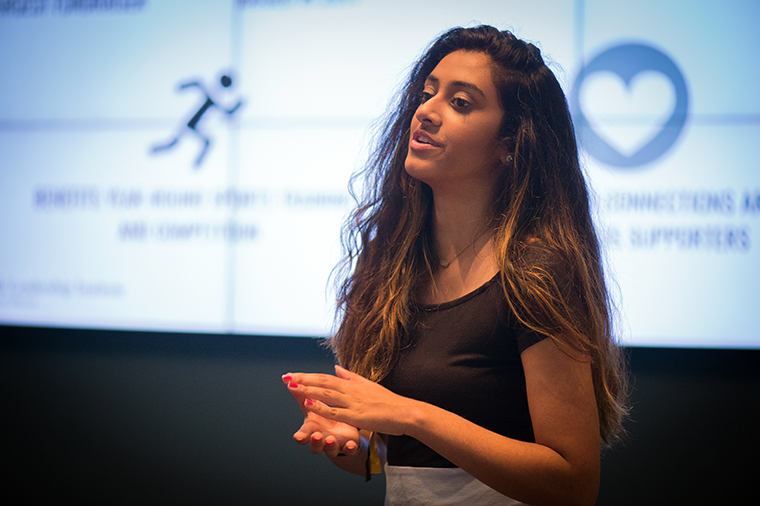Discovering your Single Biggest Thing is an important step on your journey to success, but it’s only half the equation. Once you are confident in your destination, you must determine how you’re going to get there.
This involves identifying the habits (small, daily decisions and actions) that will move you from where you are to where you want to be. At the Novak Leadership Institute, we believe one of the best ways to establish habits that will lead you to your Single Biggest Thing is by thinking about your desired identity.
When David Novak was on his journey from a career in marketing to a career running a company (his Single Biggest Thing), he looked at the leaders he aspired to be and realized they were all great public speakers. David was not a great public speaker, but he realized he could be if he adopted the habits of one.
David was intent on moving from who he was to who he wanted to be, so he started making small changes to reach his big goal. He began using shorter sentences in his speeches to make them easier to deliver and sound more natural. He adjusted his modulation and tone. He used pauses for effect.
Each time he gave a speech, he did better and moved closer to his identity as a great public speaker. Today, he hosts a top-rated podcast and relishes opportunities to speak in front of audiences.
3 steps to identify the habits you need to succeed
Use this three-step process to help identify the habits you need to reach your Single Biggest.
(1) What type of person is in the position you want to be in? List out the person’s skills and attributes. Don’t worry if your list doesn’t sound like you. You have just identified the profile of your future self, and that identity will be the inspiration for your habits.
If at this point you find yourself discouraged by negative self-talk (“I’m not a great public speaker”), use this simple reframing technique from Jason Goldsmith, co-author of “Take Charge of You”: Add the word “yet.” This turns “I’m not a great public speaker” into “I’m not a great public speaker yet”, unlocking the possibility that you can be!
(2) What small decisions or actions align with your desired identity? Go through the list of attributes and skills, and next to each one write down one small decision you could make or one small action you could take to better align with that identity.
David identified that great public speakers sound natural, and so he identified a couple habits he could adopt to sound more natural: using shorter sentences and adjusting his tone. These small changes, applied over time through practice, gradually helped him become a great public speaker.
(3) When and where can you start practicing these habits? It’s not enough to identify what you want to do; you also must identify when and where you will do it. This is called setting an implementation intention, and research has shown doing this greatly increases your chances of following through.
The best way to identify when and where to implement new habits is by doing a habit audit. This simple exercise asks you to document your current habits. It’s only by becoming aware of your current habits that you can start to understand the gap between who you are and who you want to be and to find ways to build your new habits.
James Clear, author of Atomic Habits, offers four “laws” for creating a good habit: make it obvious, make it attractive, make it easy, and make it satisfying. By adding new habits when and where you are most likely to do them, you will increase your chances of success.
Focus on progress and have fun
Because your Single Biggest Thing likely involves reaching a far-off destination, you might feel overwhelmed by the distance between your current self and future self. Just remember: the best way to get anywhere is to take one step at a time.
Your habits are immediate and concrete, and each time you practice them you will move closer to your desired identity.
Research has shown that tying immediate rewards to long-term goals can help people stick to habits. If you enjoy the feeling of becoming the type of person who achieves big things, you are more likely to continue those daily decisions and actions on the way to your Single Biggest Thing.
Implementing a habit-building framework can be an effective way to transform who you are into who you want to be. This Novak Whiteboard Session download offers strategies, tips and application exercises to help you identify and build the daily habits that will lead you to your Single Biggest Thing, creating a foundation for lasting success in your leadership journey.
